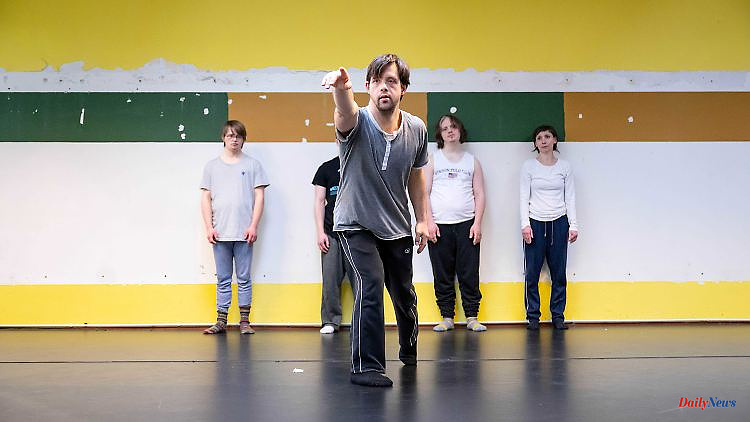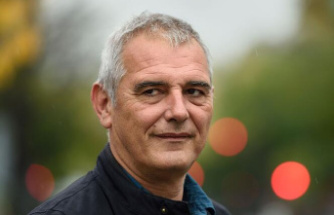Many people with intellectual disabilities work in workshops. Jobs on the first labor market are a rarity. It's different with a Bremen dance company. She employed three dancers with trisomy 21, including 32-year-old Oskar Spatz.
Oskar Spatz is standing in a spacious rehearsal room and is concentrating. He moves his legs, arms or head as required by the choreography. Seven dancers from the "tanzbar_bremen" company rehearse their latest production "Undressed". It is a contemporary piece about how dancers feel after the stageless pandemic and isolation in the limelight, how they re-explore and find togetherness. Three of the ensemble members have trisomy 21, one of them is Oskar Spatz. What is special: he and Adrian Wenzel are permanently employed as dancers at the company, Till Krumwiede is completing a training course to become a dancer.
Primary labor market jobs are a rarity for people with learning disabilities. Most of them work in workshops that have come under criticism, among other things, because of the low wages. Workshops are intended to promote the transition to the general labor market, but according to a study for the Federal Ministry of Labor only one percent of those working there make it.
According to the Chamber of Labor, more than 3,200 people with mental disabilities are housed in a workshop or in an outsourced workshop job in a company in the state of Bremen. However, only four employees each made the transition to the general labor market in 2019 and 2020. "An essential aspect of the inclusion of people with disabilities is participation in working life," emphasizes Elke Heyduck, Managing Director of the Chamber of Labor.
Oskar Spatz was also employed in a workshop for disabled people for a long time. The now 32-year-old worked with metal and wood, he says. "That was fun." He also had great colleagues. But at some point he got bored. He would rather dance more. "I'm free here," he says. He has been dancing in his spare time since he was 16. The association "tanzbar_bremen" offers regular training for people with and without disabilities.
The company also travels nationwide for performances, and has even been to Spain and Belgium. Since 2015, the "tanzbar_bremen" association has hired people with disabilities as dancers with a normal salary. "We were the first in Germany to do so," says Corinna Mindt, co-founder of the inclusive company, whose origins go back 20 years.
Five years ago, Oskar Spatz got a permanent position as a dancer after completing his qualification there. The professionalization of dance work is important to Corinna Mindt. "People with disabilities should be given the opportunity to engage in dance for more than just their free time," emphasizes the dancer and trained dance teacher. Projects need time to develop.
Mindt can still remember the reactions when she asked the authorities and offices for funding for permanent dance jobs for people with mental disabilities. "They said: You can do that in your free time. People didn't understand that dance is also work." That's different now, says Mindt.
Dance is also important for people with cognitive disabilities because they don't have to express themselves through language. "There is another level of communication," says Mindt. The dance projects are not socio-pedagogical work, choreographer Tomas Bünger clarifies. Bünger sees the ensemble members with disabilities as an enrichment: "Because they tell me a lot about their world. I'm grateful that I can work with artists like Oskar."
Oskar Spatz has big plans for the time after the premiere of "Undressed": "I want to do a solo," he says. "Me alone on stage." He would like to tell about his life through dance. "I've been working on it a bit."












